SECONDARY NEWS
From the Assistant Principal
Miss Kim Bailey
kbailey@arm.catholic.edu.au
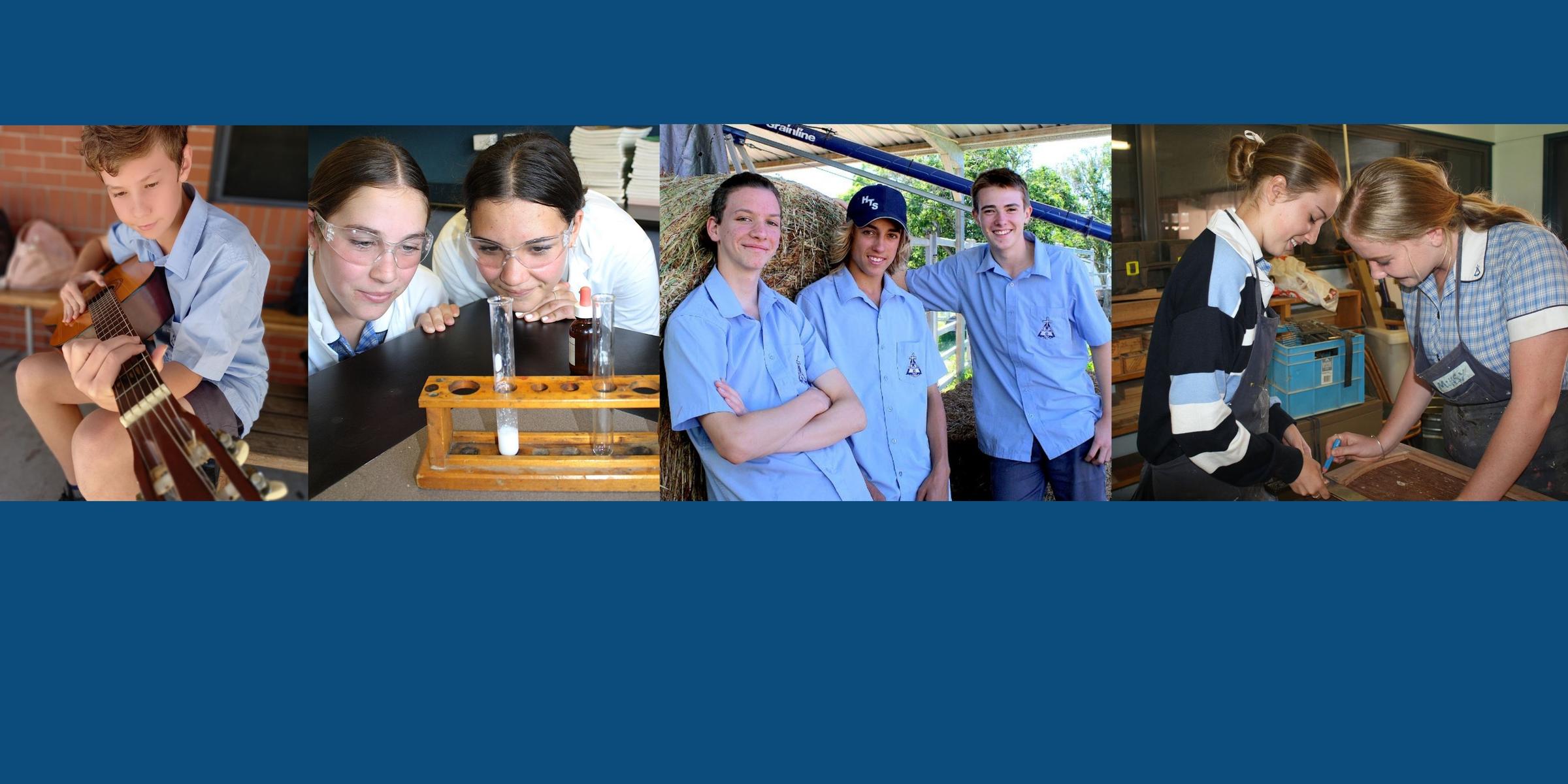
SECONDARY NEWS
From the Assistant Principal
Miss Kim Bailey
kbailey@arm.catholic.edu.au
Australian Geography Competition
Congratulations to the students who participated in the Australian Geography Competition. It is a wonderful way to enhance skills and test your knowledge and abilities.
Well done to Dominic Kenny and Julian Collins, who received a Distinction, and to Bethany Pearse for her amazing achievement in receiving a High Distinction award, which puts her in the top 3 per cent of the nation.
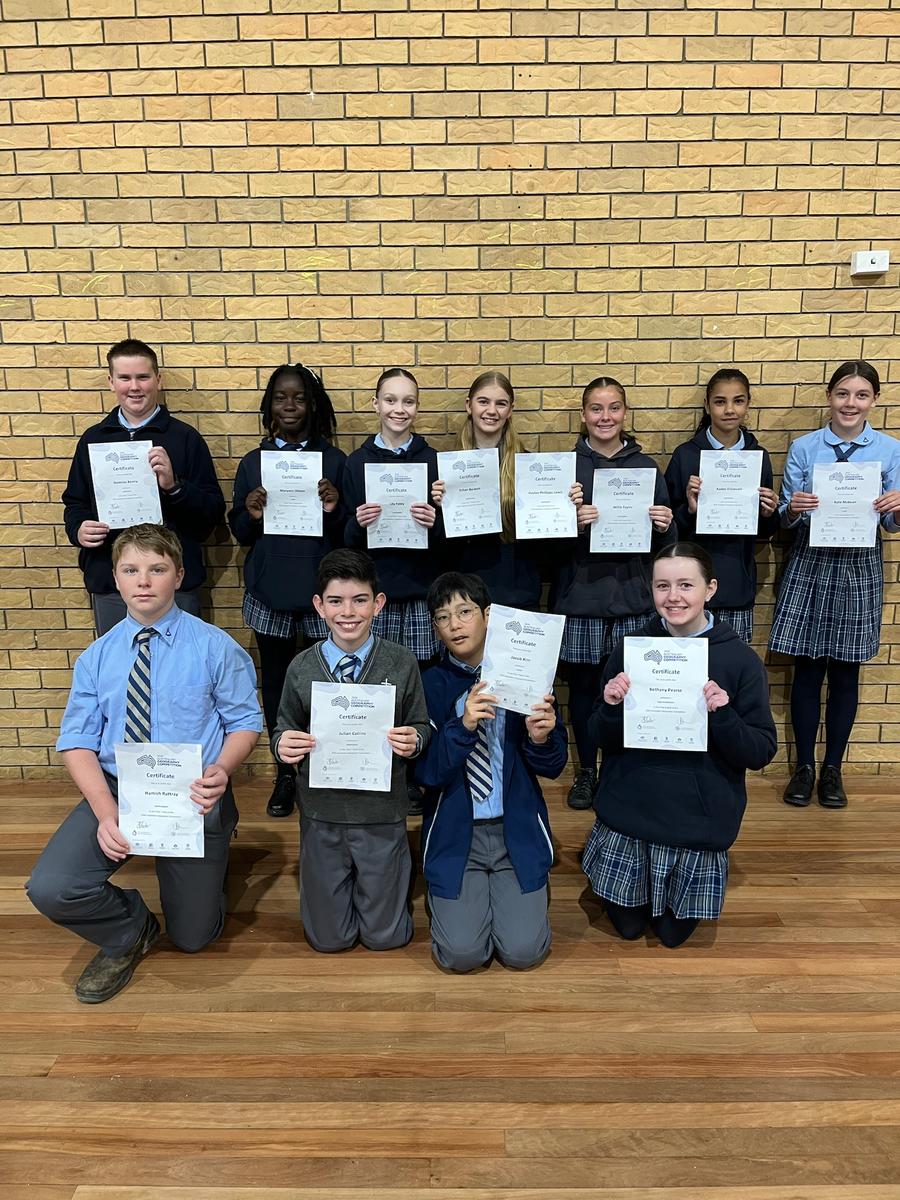

Thanks to the parents and students who attended the interviews last night. Productive interviews were conducted and we are appreciative of the efforts made by so many to attend.
Parents who were unable to attend and would like interviews are asked to contact their subject teacher or Miss Bailey as soon as possible.
As part of their studies of Environmental Change and Management Year 10K Geography undertook fieldwork last Tuesday. The students, accompanied by Mrs East, visited Lake Inverell to investigate the health of the Macintyre River system. Mr Andrew Walsh from Local Land Services joined us and shared his knowledge and expertise with us in this area.
The students gained valuable insight into the ways in which the health of a river system is determined and participated in some water quality testing and a water bug survey. Management strategies to maintain healthy waterways were also discussed.
We would like to thank Mr Walsh for giving up his time and providing this valuable learning opportunity for the students
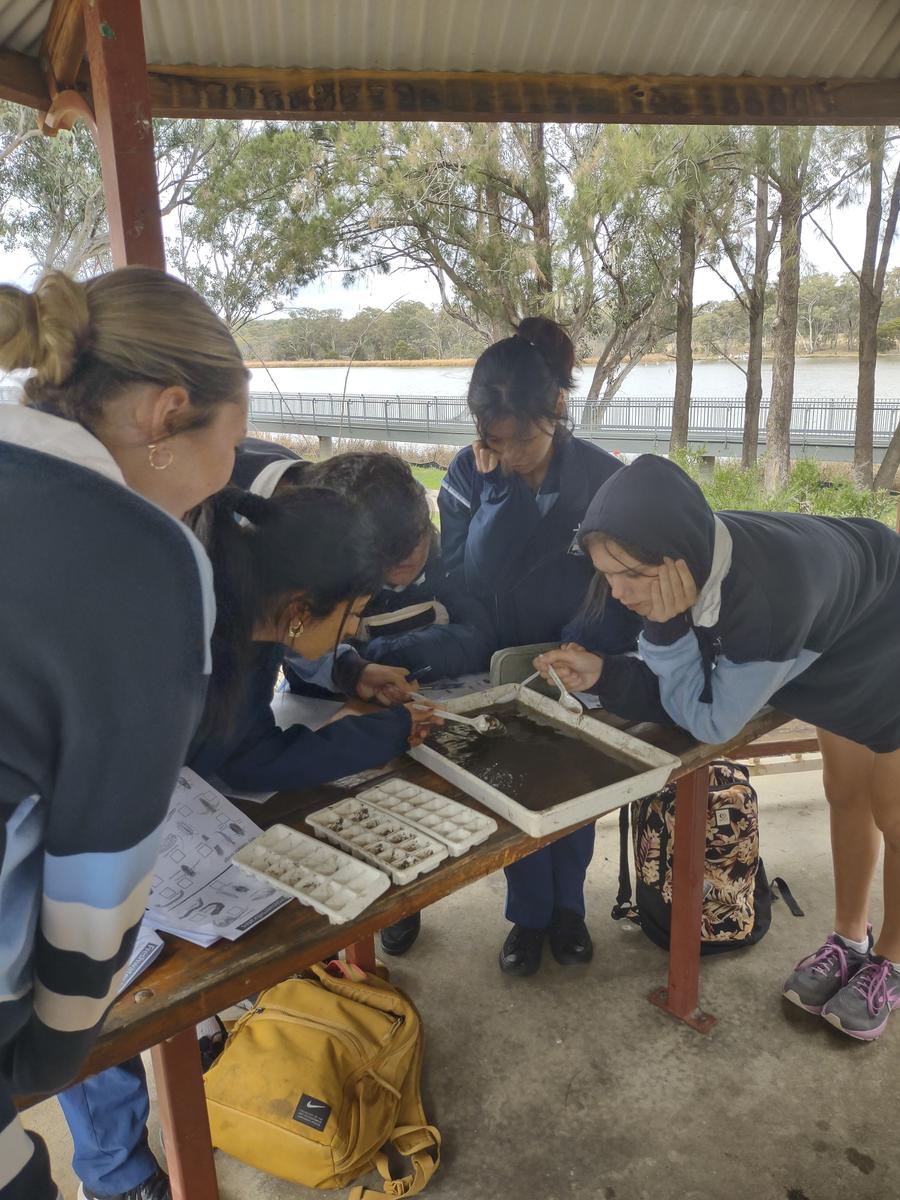

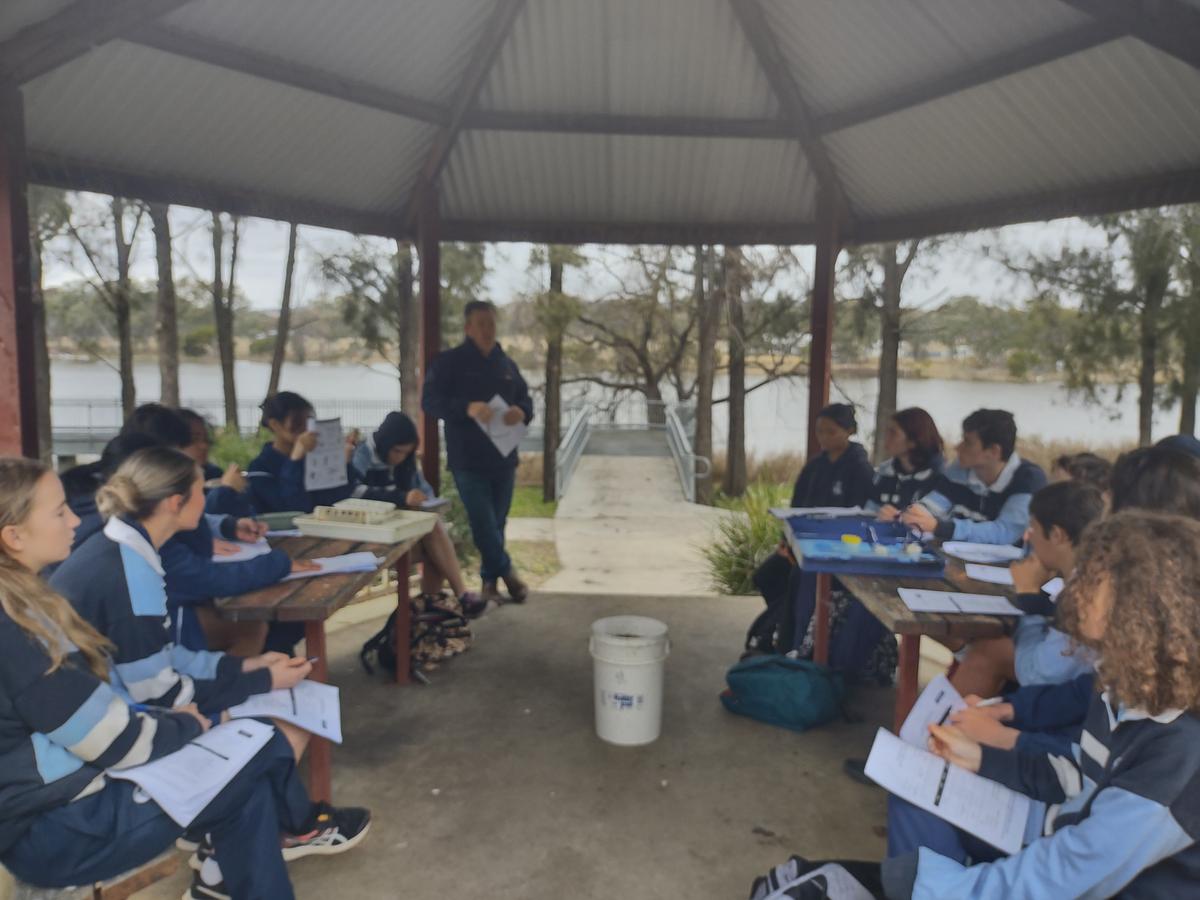
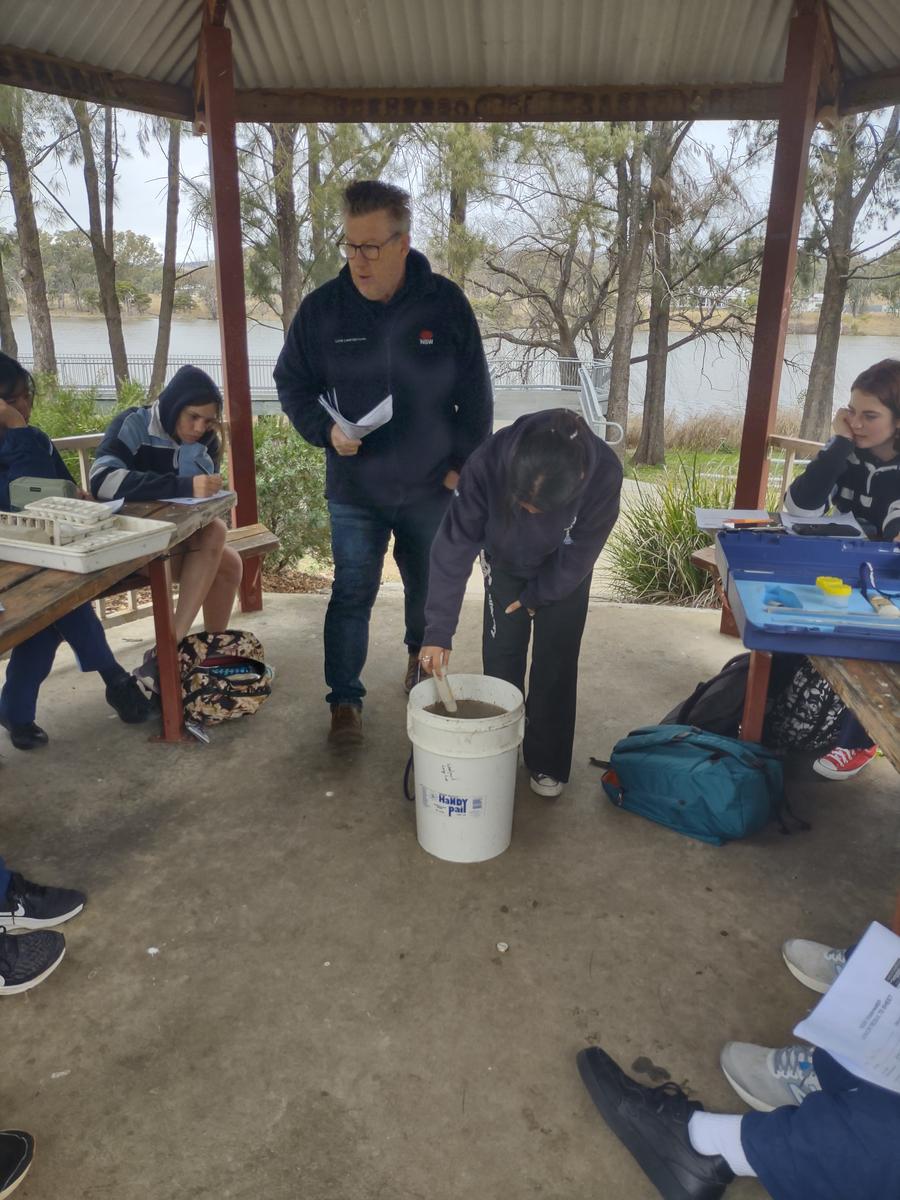




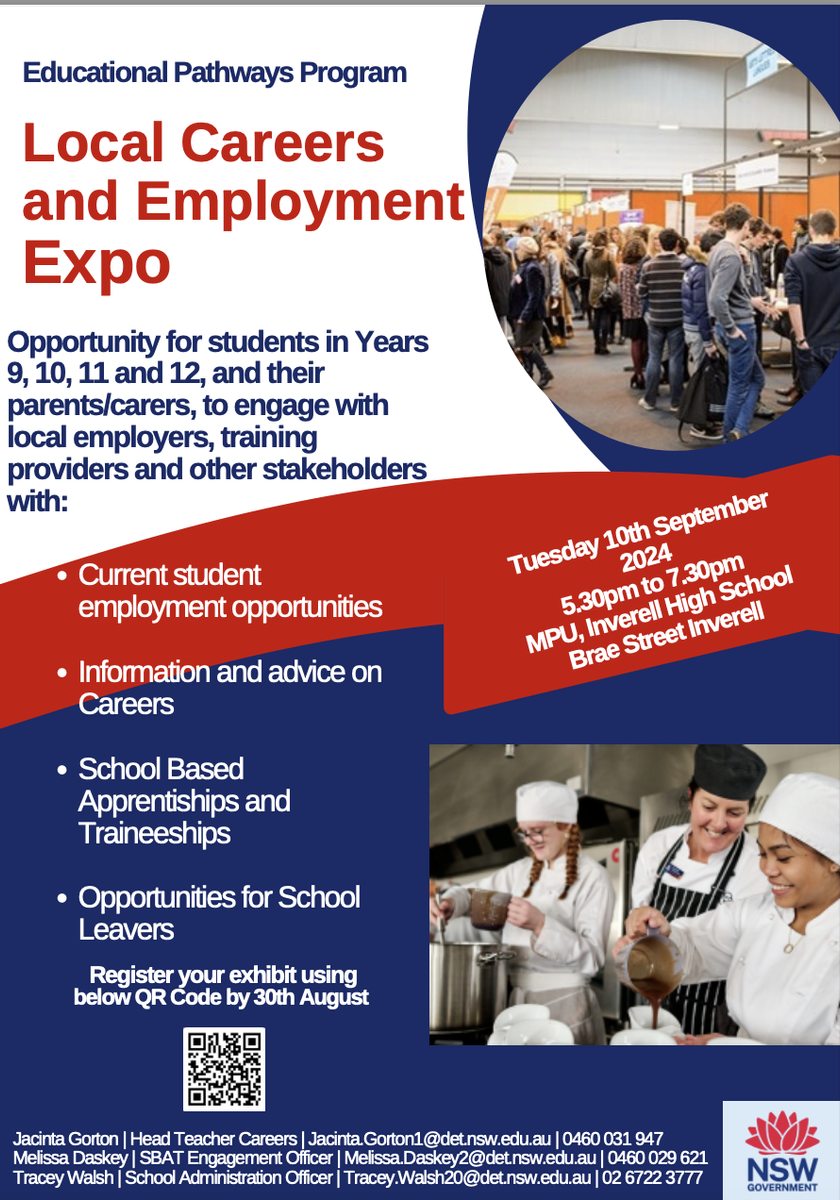

Year 10 were given a calendar and assessment outline for Term 3. It is a busy term, and this may help their time management and planning. They were given a hard copy, and an electronic copy was emailed. The schedule was also posted to Compass for both Year 10 students and families.
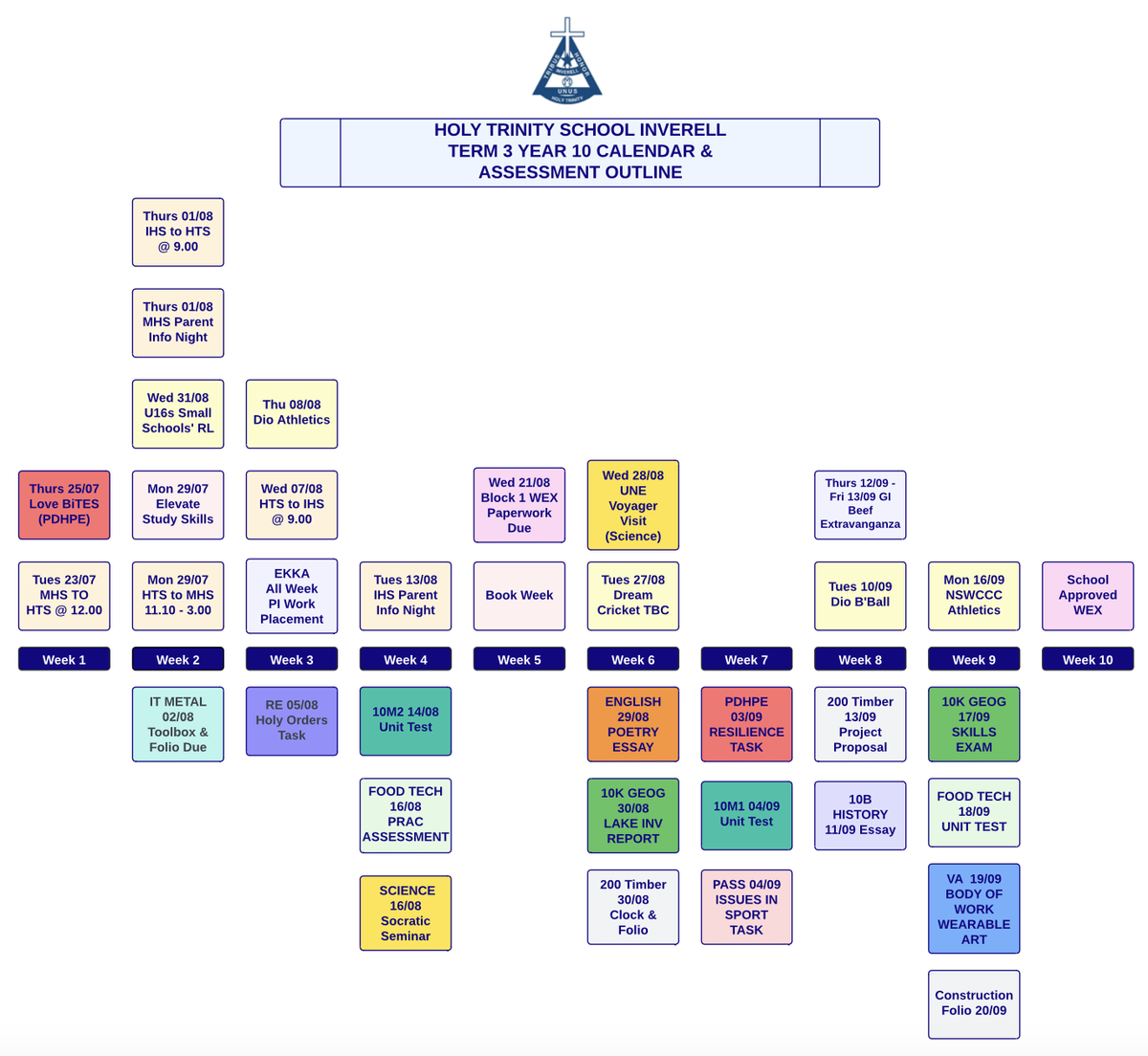

Thank you to those students who regularly adhere to the expectations regarding uniforms. However, some students are not in uniform. The following issues are causing concern at the moment:
Class teachers, Pastoral Care teachers, and the Leadership Team monitor uniforms regularly. If a student is not in the correct uniform, a dated note from the family advising when the uniform can be rectified is required. This note is to be given to the Pastoral Care teacher (Secondary) in the morning.
Where the school can assist, we will endeavour to help the student correct the uniform, e.g., provide an elastic hair band, provide a container for excess jewellery, and give a spare school outerwear garment.
Many lost property items are in the secondary staffroom. Please check if you are missing any clothing. All students are advised to label their belongings, allowing lost or misplaced items to be returned.
Starting Assignments Straight Away: Why It’s Crucial for Success
Ever leave your assignments until the last minute? Procrastination might seem harmless, but it can lead to unnecessary stress and lower-quality work. Here are four compelling reasons to start working on your assignments immediately:
1. Get Your Brain Thinking About the Topic
At the very least, read through the requirements of the assignment on the day you receive it. Even if you're not actively working on it, your subconscious will begin processing the information. This early engagement can help you come up with ideas and understand the scope of the assignment more thoroughly.
2. Find Library Resources
Although the internet offers a wealth of information, the school library is also a valuable resource. Drop in soon after receiving the assignment. Reference books, academic journals, and magazines are often in high demand and can disappear quickly. Relying solely on Google may limit the depth and quality of your research. Your librarian is a great ally in your research. Librarians can guide you to relevant books, journals, and digital resources that you might not find on your own.
3. Starting Early Means More Time to Explore & Ask for Help
Starting your research early gives you more time to dive deep into your topic. Use a variety of sources such as the library, teacher references, school textbooks, and reliable internet resources. If you start early, you can identify gaps in your understanding and have ample time to ask your teacher for clarification or additional help.
4. Create a Safety Net
Life is unpredictable. Starting your assignment immediately creates a buffer for unforeseen events like illness or emergencies. A well-planned schedule that allows for the unexpected ensures you have enough time to complete your assignment without unnecessary stress.
Additional Tips for Effective Assignment Management
Break Down the Assignment
Divide your assignment into smaller, manageable tasks. Create a timeline with specific goals for each day or week. This will help you stay organized and avoid feeling overwhelmed.
Stay Organised
Keep all your research materials, notes, and drafts in one place. Use folders, both physical and digital, to categorize information by topic or section of your assignment. This organization will save you time and keep your work streamlined.
Set Specific Goals
Set clear, achievable goals for each study session. For example, aim to complete a specific section of your assignment or gather a certain number of sources. This focused approach will keep you motivated and on track.
Take Breaks
While it's important to start early and stay on task, it's equally important to take regular breaks. Short breaks can help you stay refreshed and maintain a high level of productivity.
Review and Revise
Once you’ve completed your assignment, take time to review and revise it. Check for any grammatical errors, ensure all your sources are properly cited, and verify that your arguments are coherent and well-supported.
By starting your assignments as soon as possible and following these tips, you can reduce stress, improve the quality of your work, and achieve better academic results.
How To Stay Positive About Your Schoolwork
It can be difficult to stay positive at all times about your schoolwork, particularly if you have challenges, whether they be personal or when you are grappling with something like online learning. When we allow pressure and stress to build, we can get into bad habits and let go of good habits. As a result, students can feel even more drained and exhausted.
The key to being positive and managing negative emotions such as anxiety and feeling down and depressed in any pressure situation, including schoolwork and exams, is to “fuel up”. “Fuelling Up” is about boosting wellbeing factors in your life. You need to boost the wellbeing factors in your BODY, MIND and EMOTIONS.
BODY: Here are some things you can do to boost the energy in your BODY
Get better sleep.
Feeling good all starts with getting the right amount and type of sleep. Start with a good night-time routine. Stop anything that stimulates you, such as caffeine or TV or computer, iPad or phone screens etc. Try a warm drink such as chamomile tea and use essential oils such as lavender oil. Having a soothing bath or shower can also help along with gentle stretching of tight or tense muscles. If you still feel you are not getting a “good” sleep, be sure to see your doctor.
Eat in Moderation
Never skip a meal, especially breakfast. Breakfast replenishes your body and helps you start your day full of energy. Eat three main meals and two to three snack meals a day. Eating five to six times a day keeps your blood sugar levels balanced, giving you an overall sense of well-being needed for focusing on your tasks and responsibilities.
Exercise Regularly
Regular exercise, at least three times per week for a minimum of 30-minute sessions, can virtually “soak up” stress chemicals in your body and help you to relax and even sleep better. Brisk walking, aerobic classes, swimming, bike riding, or jogging are great exercises to release stress buildup and relax your body and mind to either start or end your day right.
MIND: Here are some things you can do to THINK more positive
Change your thinking and perceptions
Write down your top 5 fears and worries. What’s the worst thing that can happen? Then ask yourself, “IS THAT TRUE”? Usually, fears and worries are not based on reality but on imagined scenarios that have little to no evidence. If it’s something that can’t be changed, bring acceptance to it. It is what it is for now!
Change your focus
Have you noticed that what we worry about, we make bigger and keep closer to us by the way we think and focus? Try this…make your fears and worries SMALL in size (5 cm in height), DARK in brightness and as far away as possible in DISTANCE. When we change the size, brightness and distance of the things that upset us in our minds, it reduces the intensity of the emotion.
EMOTIONS: Here are some things you can do to FEEL more positive
Acts of kindness
Make a list of 5 acts of kindness you can do every day. Make them simple acts of kindness that are easy to do, such as saying thank you etc. Do these 5 acts of kindness every day for 6 weeks. The research shows that people that do this and think of 3 good things in their life (as above) have a dramatic positive boost in their mood.
3 good things exercise
Every day at the start and end of your day, think of 3 good things that happened. Write them down. Then think about either WHY those good things happened or how it MADE YOU FEEL when those good things happened.
Start ticking things off your list
Pick something small and achievable to start with that you need to do for school and get it done. You will feel much more positive when you start doing things. Do a few more easy things to get your confidence up, then tackle a more challenging task.
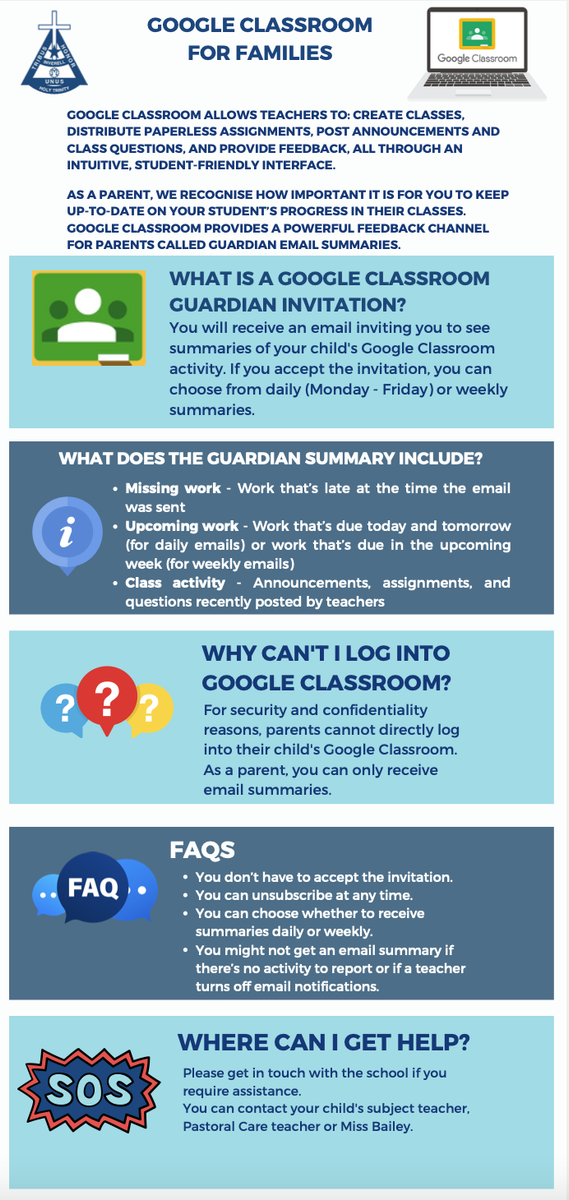

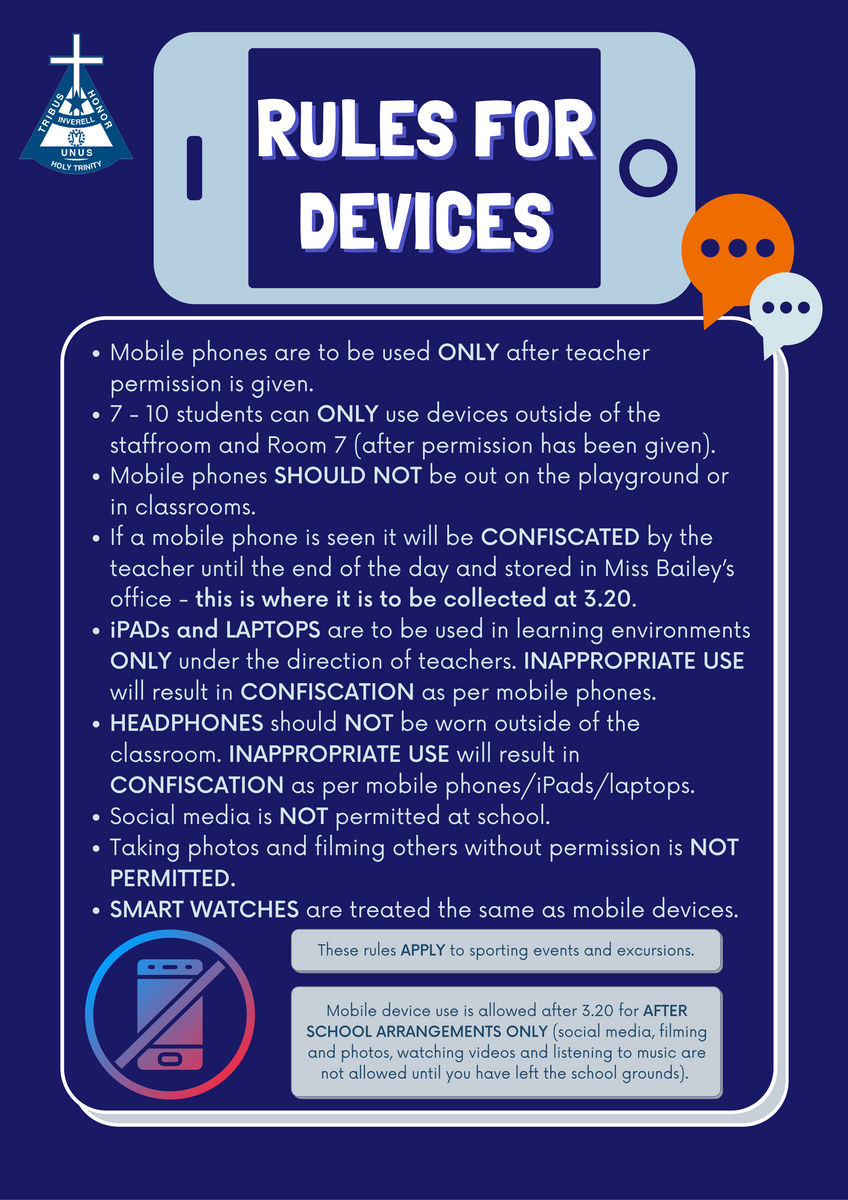

Students are not permitted to use their devices unless instructed by a teacher. This includes both the classroom and the playground. The students are aware of this policy and receive constant reminders in Pastoral Care and their teaching classes. There are also many posters displayed all around the school.
If a student needs to use their device, they must first seek permission from a teacher and use it in an area designated by the teacher. This is usually under their direct supervision or outside the Secondary staffroom.
If students cannot follow this policy, their phones are confiscated and placed securely in Miss Bailey's office, where they are collected by the student at the end of the school day.
Teachers record each time a device is confiscated. After it is confiscated for a second time, it remains at school until it can be collected by a parent or carer.
If you have any questions or concerns about your child's learning or wellbeing, please contact Miss Bailey, your child's Pastoral Care teacher or their subject teacher. We are only too happy to assist.
Year 7:
7E - Mr Peter Ehsman
7J – Mr Jack Jeffery
7K - Miss Kristina Majetic
7M – Mrs Veronica McCormick
Year 8:
8G - Mr Anthony Gaias
8M - Mrs Christine McLachlan
8T - Mrs Kathy Townsend
8W - Mr Sam White
Year 9:
9C – Miss Claudia Cush
9E - Mrs Angela East
9U - Mr Uebergang
Year 10:
10B - Miss Kim Bailey
10K - Mr David Koch
Students and parents are encouraged to approach the relevant Pastoral Care teacher if they need assistance.
Stage Leaders
Stage 4 - Mr Anthony Gaias
Stage 5 - Mrs Angela East
Miss Kim Bailey
Miss Claudia Cush
Mrs Claudia Dolbel
Mrs Angela East
Mr Peter Ehsman
Mr Anthony Gaias
Miss Alana Goldman
Mrs Mary-Jane Guest
Mrs Malynda Hiscock
Mr Jack Jeffery
Mr David Koch
Miss Kristina Majetic
Mrs Veronica McCormick
Ms Christine McLachlan
cmclachlan@arm.catholic.edu.au
Mr Matthew Pye
Mrs Jane Taylor
Mrs Katherine Townsend
Mr Blake Uebergang
Mrs Carrie Watchirs
Mr Sam White
Staff can be contacted directly using the email address above or via the Compass portal.